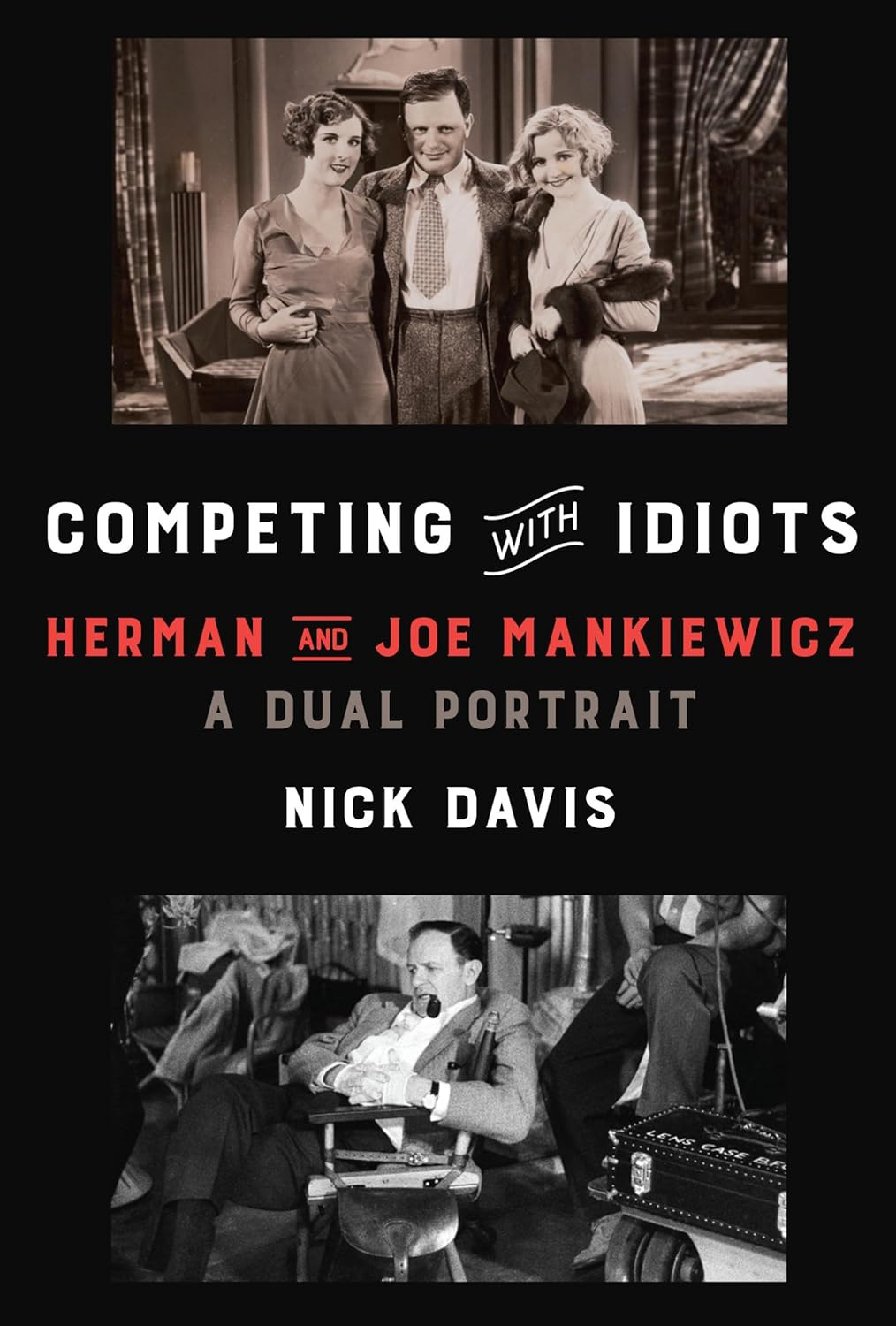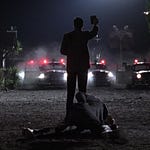R. A. Dick’s 1945 novel The Ghost and Mrs. Muir begins with an unexpected death that puts its protagonist in a new place:
Mrs. Muir was a little woman. Everyone agreed on that point. Where others were merely referred to as Mrs. Brown and Mrs. Smith, she was invariably spoken of as “little Mrs. Muir” or “dear little Mrs. Muir,” and latterly as “poor little Mrs. Muir,” for her husband, that upright member of the church and indifferent architect, had died suddenly, leaving her with two children and an inadequate income.
There’s the setup for the plot (how will she live) and the questions that will build her character (how should she live). One can imagine the knee-jerk reaction to this sentence were it read for a review today: “Aha! The patriarchy defines her and seeks to contain her!” Righteous, hunting-for-offense readers would feel good about having uncovered yet another grievance and stamped “CAUTION” on the book cover like meat inspectors. (Their work is never done.) But the novel and film, faithfully adapted by Phillip Dunne and directed by Joseph L. Mankiewicz, are so much richer than the kinds of pages and frames some viewers like (or pretend to like) because they contain Very Important Messages as complicated as bumper stickers. The novel and film are not indictments or tiresome op-eds. Give Dick and Mankiewicz more credit than that.
The Ghost and Mrs. Muir is a perceptive dramatization of the mystery of authorship. If the book and film have any “point to make” at all, it’s that the wonderful feature of movable type is that readers cannot tell anything about the author if they must rely on only the words. Times New Roman has no race, class, or gender. Print rises above political categories and contemporary complaints about who is “allowed” to tell a story. Imagination is more powerful and more interesting as a subject than hand-wringing debates about who-is-allowed-to write-about-whom in which novelists always sound afraid of their own shadows.
Lucy Muir never intends to become a writer, but the ghost of Captain Gregg convinces her that his memoirs will be a bestseller and allow her to save Gull Cottage, which she has rented and which he hopes will become a home for retired seamen. After being scolded by Lucy for frightening way any prospective lodgers, Captain Gregg tells her his plan:
GREGG: Now my dear, I’ve solved all your problems. You're going to write a book.
LUCY: A book? But I couldn’t. I find it hard enough to write a postcard.
GREGG: No, but I can. I can write a book and you can put it down on paper for me.
LUCY: What will the book be about?
GREGG: Me. The story of my life. And we’ll call it … Let’s see … We’ll call it … Blood
and Swash. Yes! Blood and Swash by Captain X.
LUCY: I don't think that's at all a nice title.
GREGG: It’s not meant to be. It’s meant to be sensational, like the subject!
They become another odd couple, and while their romantic attraction grows, so does the manuscript. As collaborators, they are more like Scorsese and DeNiro than Herzog and Kinski. Her role as a literal ghostwriter is to shape his ruminations into prose and offer an occasional editorial suggestion. (This example of ghostwriting will prove more interesting than this recent one.) Mrs. Muir balks at typing a verb Gregg suggests while describing his time in a brothel. “But it’s a perfectly fine word,” he explains. “It means what it says.” When she relents and types out the four distinct letters, one at a time, the viewer sees a small comic play about any writer who has ever searched for le mot juste. But Captain Gregg isn’t a celebrity spouting his memories; he can recite Keats’s “The Nightingale” and has spent many hours in the crows nest with a book in his hand. He understands the power of language and transfers this power to Lucy, both in the pages and in her manner of speaking: after a few weeks with the Captain, she uses “blasted” as if she had been saying it for years.
It’s impossible to talk about a filmmaker exploring the workings of a creative mind without recalling another famous film that dramatizes the mystery of authorship—or the struggle to become an author when one has all the trappings of authorship (a typewriter and some paper) but not the crucial element. Like Lucy Muir, Jack Torrance has a room of his own, isolated from the world, and is ready to begin. “I’m outlining a new writing project,” Jack tells his new boss, “and five months of peace is just what I want.” The difference between these writers is that Captain Gregg taps Lucy Muir’s potential for creativity and inspiration; Delbert Grady draws out Jack’s barely-disguised hatred of his wife. As her stack of finished pages gets higher, we can smile and say, “Heeeeere’s Lucy!”
Nick Davis knows that trying to write is like being haunted. His grandfather, Herman Mankiewicz, and great uncle, Joseph L. Mankiewicz, loomed over his childhood. Davis was raised being told that Herman (who had died over a decade before Nick was born) had co-written the greatest movie ever made (Citizen Kane) and that Herman’s younger brother Joe had directed the biggest disaster in history (Cleopatra). Herman was canonized, Joe was ostracized—and despite Joe being very much alive, he was a ghost to Davis, who believed the family line and never spoke with him until he was twenty-three years old. That chance meeting led Davis to write Competing with Idiots: Herman and Joe Mankiewicz, A Dual Portrait (2021), one of the best books I’ve read about Hollywood, talent, and rivalry. (You can find my review of it here and read why I included it on my list of Ten Best Books of the 21st Century).
The road to publication is not always like life at Gull Cottage; sometimes it’s more like the Overlook Hotel. Davis initially planned to make a film about the brothers; that eventually pivoted to a book, and then the book went through multiple versions until it reached its present form. Lucy has the ghost of Captain Gregg to inspire her; Davis had Herman, whose reputation and larger-than-life persona—his ghostly aura—sometimes made it difficult to get at the real person. (It seems providential that Herman’s co-author of Kane was exactly the same way and therefore a great subject for biographers and that the whole idea of Kane is the impossibility of pinning down a person as a whole.) As for his second ghost, the more Davis investigated Joe’s backstory, the more he realized that he was going to have more long nights revising his manuscript, an idea presented in the book’s opening sentence: “It’s only when you stop knowing everything that you can start to know anything at all.” Lucy and Davis both had to use their typewriters like Ouija boards, getting signals from the dead in order to create a story for the living.
This is why Davis insists that his book is a portrait of the brothers. Oscar Wilde told us that every portrait painted with feeling is more about the artist than the subject; while Davis does offer the brothers’ biographies in the conventional sense, his book is also about his role as a detective and how he comes to better understand his extended family.
“We’re all haunted by the past and the things in our own heads. The ghosts of these two guys haunted me for years.” —Nick Davis
In this interview, Davis talks about the writing of Competing with Idiots and how he revised it until he was satisfied with his version of the ghosts with whom he had been wrestling for years. This may sound like he is a hand-wringing Tortured Artist, trying to exorcise painful memories through print, but Davis is the exact opposite. He’s a great storyteller and perceptive lover of movies, as I learned when interviewing him for the New Books Network in 2022, the same year we had him on our 150th episode of Fifteen-Minute Film Fanatics to talk about Citizen Kane.1 Like Competing with Idiots, a conversation with Nick is filled with enthusiasm, good humor, and a depth of knowledge about the subject at hand. We talk about Joe’s strengths as a director, how The Ghost and Mrs. Muir (1947) prefigured All About Eve (1950), the chemistry between Gene Tierney and Rex Harrison, and the ways in which the film dramatizes not only the nature of authorship, but the nature of an impossible relationship. “How we deal with our ghosts is a large part of how we navigate life,” Davis explains. “We all come to relationships with ghosts and baggage and wonder, ‘How do your ghosts match up with my ghosts?’”
Mankiewicz’s handling of the scene in which Captain Gregg says goodbye to Lucy is one of the film’s great moments. Leaning over her as she sleeps, he says:
Listen to me. Listen, my dear. You've been dreaming. Dreaming of a sea captain who haunted this house and the talks you had with him. Even of a book you both wrote together. But Lucia, you wrote the book. You and no one else. That book was imagined from his house, from his picture on the wall and from his gear lying around in every room … It’s been a dream, Lucia, and in the morning and the years after, you’ll only remember it as a dream.
Lucy has been inspired by Captain Gregg just as all writers are inspired by some sort of intangible, ethereal means difficult to describe but easier to dramatize. Watch Gene Tierney’s breathing as he brings his face to hers and you’ll see that she is literally inspired—the word is derived from the Latin inspirare, “to breathe or blow into,” for Gregg has breathed into Lucy what she needs to become an author.
The inspiration works: Blood and Swash is a bestseller and no one (including the know-it-all publisher, Mr. Sprague) can tell it was written by a woman with no experience at sea that couldn’t tell a sail from a sheet. If the novel and film begin with people renaming Lucy “poor Mrs. Muir,” they end with her finding her “real” name: Lucia, a name that Captain Gregg says is perfect for “an Amazon or a queen.” She begins the novel and film complaining about being constantly bossed and told what to do, but through the power of her pen, she finds her queenly status. And as Nick Davis reminds us, the film works so well, despite its potentially-hokey premise, because Joseph L. Mankiewicz understood human foibles and relationships so well.
Mankiewicz would eventually find his own muse when he came across a short story by Mary Orr, “The Wisdom of Eve,” in the May 1946 issue of Cosmopolitan. But there was more to the creation of All About Eve than that story, as Davis explains in his book:
The story was valuable, of course, and had sparked Joe’s imagination, but really, the germination of All About Eve had come much earlier. Joe had been fascinated by the outsized personalities who demanded to be the center of attention for decades. Whether in theater, on screen, or in life, Joe had always been drawn to dramatic characters ... When [author] Gary Carey asked him about Mary Orr, Joe talked instead, for more than an hour, about the theater. The theater, he insisted, was why he created Eve (206).
Like Lucia Muir and Nick Davis, Joseph Mankiewicz found a way to channel the ghosts who had inspired him into art.
Readers can imagine how I casually mentioned to anyone who would listen that I had recorded an episode about Citizen Kane with the grandson of its co-author. “And what did you do this weekend?”











